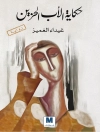Certain books never live up to their memorable titles. Others do, but not in the way their authors might have anticipated. Julien Benda’s Treason of the Intellectuals, an essential intervention in twentieth-century debates about intellectual responsibility, is the second sort of book. Cast into the agitated waters of European politics between the two world wars, it still floats ashore every decade or so, attracting readers with its stirring call to the independent life of the mind, free from the lures of power and authority. It is essential reading.
Ever since the book’s publication in 1927 its argument has been taken up by writers of very different political stripes in very different historical circumstances. In the 1930s, communist intellectuals denounced their fascist counterparts as traitors to the truth; liberals levied the same charge against communists and fellow travelers during the Cold War, only to find themselves then put in the dock by progressives and neoconservatives and now populists. Treason is one of those books that serve both as a lens for discerning the present and a mirror reflecting the image of those who appeal to it. This welcome new edition of the work offers an opportunity to look without and within with fresher eyes.
—Mark Lilla, from the book’s Introduction In an era when intellectual and artistic life is increasingly being distorted by political dogmatism, Julien Benda’s Treason of the Intellectuals is a classic that speaks with a new and extraordinary urgency. Benda’s essay, published by ERIS in a new translation by David Broder, offers an incisive account of interwar Europe that ranges from the influence of Friedrich Nietzsche and Georges Sorel to the activities of Charles Maurras and Benito Mussolini. It also serves, however, as a remarkably timely warning against the seduction of modern intellectuals by tribal loyalties and antipathies.
Rather than detaching themselves from communal ties as their forebears had done, Benda argues that twentieth-century European intellectuals willingly subordinated the disinterested pursuit of truth to the servicing of group interests (particularly the interests of their own nations and social classes). Partisan agendas had a corrosive effect not only on moral and political philosophy, but also on the writing of history and fiction. With its penetrating analyses of nationalism and of the tensions between group identity and intellectual freedom, Treason of the Intellectuals is as necessary a book in the twenty-first century as it was in the twentieth.’Benda’s book is the great twentieth-century defense of intellectual integrity. It has become extraordinarily timely again at a moment when social criticism often routes itself through the particular loyalties of racial, religious, and national identity.’
—David Bromwich, author of How Words Make Things Happen’Sometimes a text reaches out from the past and grabs the present by the throat. Julien Benda has much to say to our time of anger and division, a time when it is easy to imagine the end of everything but nearly impossible to imagine how things might change let alone improve. Treason of the Intellectuals remains inspiring and invigorating, a call for independence and the creation of an alternative to our wholly suffocating and mind-deadening political culture. Let this book become a companion to you and a tonic for the turmoil.’
—Jessa Crispin, author of Why I Am Not a Feminist: A Feminist Manifesto
Over de auteur
Mark Lilla is Professor of the Humanities at Columbia University and a prizewinning essayist for The New York Review of Books and other publications worldwide. His books include The Shipwrecked Mind: On Political Reaction; The Stillborn God: Religion, Politics, and the Modern West; The Reckless Mind: Intellectuals in Politics; and The Once and Future Liberal: After Identity Politics. He lives in Brooklyn, New York.












